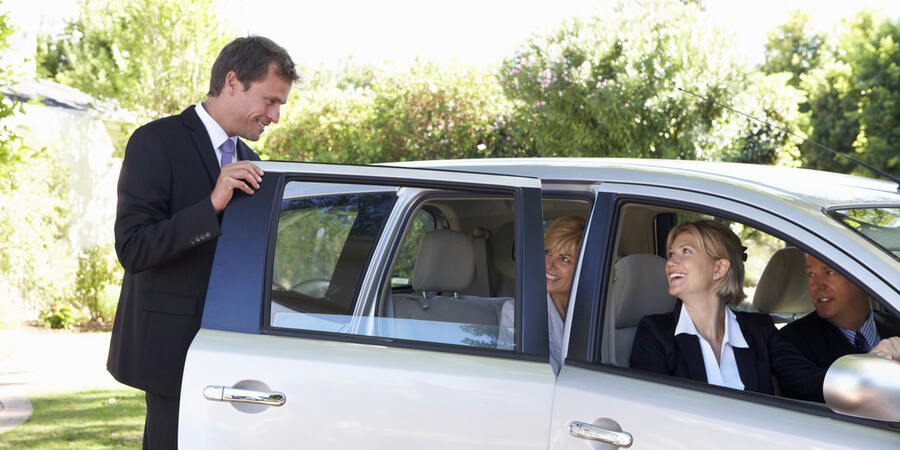From conceptualization to realization, global warming has become a world known phenomenon and threat. Therefore, it is important to carry out eco-friendly business trips now, more than ever. Businesses understand their responsibility as a part of their CSR and opt for alternate green technologies while sending their employees on travel. Though companies are taking initiatives to find the best possible solutions for organizing business trips, travelers should also be aware of their impact on the environment. Travelers can use e-cars, car pools, reusable products and more.
Tips to organize eco-friendly business trips
Travel managers should plan sustainable trips for employees while carefully designing itineraries. They can choose methods and processes that can reduce the overall carbon footprint of employee trips. Further, they should educate employees about global warming, its effects, and ways to reduce the impact.
1. Avoid connecting flights
While connecting flights can seem a cheaper option, it leads to more carbon emission due to different routes used by two flights to reach the same destination. Most of the time, the airport used by the two flights increases the overall distance traveled. Therefore, the cumulative consumption of fuel becomes more than it should be. Hence, travel managers should adhere to direct flights as it reduces the overall carbon footprint of the trip. As an added benefit, extra time of the employee is not spent on layovers.
2. Book rail instead of air
As railways carry more passengers than airplanes, they save more fuel than the latter. When talking in numbers, only 14 grams of Carbon Dioxide is produced while carrying a passenger per mile in trains as opposed to 158 grams in airplanes. It is notable while comparing rails and airplanes impact on the environment. Additionally, railways have a profound network between the travel destinations compared to that of airplanes. The only disadvantage of using rail is that they take more time than airplanes to reach the destination. However, the time is being reduced considerably by newer technology immersion in the railways.
3. Choose green hotels
Modern hotels commit themselves to protect the environment from the looming threat of global warming. They device mechanisms to decrease wastage of water and energy while using sustainable sources. They use methods such as solar panels, electric transportations and more. They are also determined to reduce waste and use biodegradable packaging. Further, most of the hotels are located near the business hubs, airports, and other important venues to reduce the frequent need of taxis and cars for traveling.
4. Use car pools and public transport

While opting for taxis and cabs can seem a comfortable option, an environmental contributor will always choose public transport wherever possible. Transport such as buses, metros or electric bikes are a great way of reducing one’s carbon footprint. You can also choose different modes of transport to reduce the particular impact of a transport on the environment and maintain a balance overall. In addition, there are numerous carpooling apps that can be opted to utilize a car’s potential to its fullest.
5. Pack essentials
While traveling, packing light is not only good for oneself but also the environment. More fuel is burnt with increasing kilos of weight. Therefore, travelers should be cautious of what they are packing and why they are packing. Travel managers can create packing lists for travelers or travelers can pack only what is essential on their own. Additionally, they can further reduce the weight of the bag by choosing air bags as opposed to traditional suitcases.
Suggested Read: A Guide To Efficient Business Traveler Luggage Packing
6. Avoid use and throw
Bringing your own water bottle will considerably reduce the usage of disposable packaged water bottles. This will not only limit the non-biodegradable waste but also save energy used to manufacture such bottles. Plastics can last for a number of years and release toxins that can seep down into underground water while degrading. Therefore, one must avoid the usage of plastics as much as possible. Be it straws, cutlery, carry bags or any such products, you should avoid it as much as possible.
7. Save hotel’s energy
Travelers should make it their own mission to save electricity and water of the accommodations and other such venues. While you go out of your room, you should turn off all the electrical appliances such as ac, fans, lights, etc. You should also make sensible usage of water supply and don’t waste even a drop of it. Don’t waste food and take only what you can eat.
It is crucial to save energy, for a sustainable future. Travelers should understand their responsibility while traveling to a foreign land. They should adhere to tips for eco-friendly business travel mentioned above. Additionally, businesses can employ consultants that will help them devise sustainable travel strategies. Though, they may look like an additional cost, the consultants will make the difference of day and night.
Suggested Read:How To Progress Towards Sustainable Business Travel
Eco-Friendly Business Travel FAQs
How can you help in saving environment on business trips?
You can use direct flights or railways while booking for your corporate trips.
What are the best options to travel within a city?
As for an eco-friendly options, travelers can use car pools and public transport.
How can you save energy while staying at a hotel?
You can switch off the lights and taps when you are not using them.



